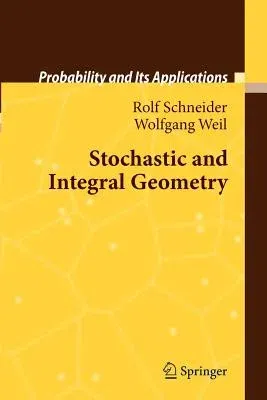Rolf Schneider
(Author)Stochastic and Integral GeometryPaperback, 25 November 2010

Qty
1
Turbo
Ships in 2 - 3 days
In Stock
Free Delivery
Cash on Delivery
15 Days
Free Returns
Secure Checkout
Part of Series
Probability and Its Applications
Print Length
694 pages
Language
English
Publisher
Springer
Date Published
25 Nov 2010
ISBN-10
3642097669
ISBN-13
9783642097669
Description
Product Details
Authors:
Book Format:
Paperback
Country of Origin:
NL
Date Published:
25 November 2010
Dimensions:
23.39 x
15.6 x
3.61 cm
ISBN-10:
3642097669
ISBN-13:
9783642097669
Language:
English
Location:
Berlin, Heidelberg
Pages:
694
Publisher:
Weight:
975.22 gm

